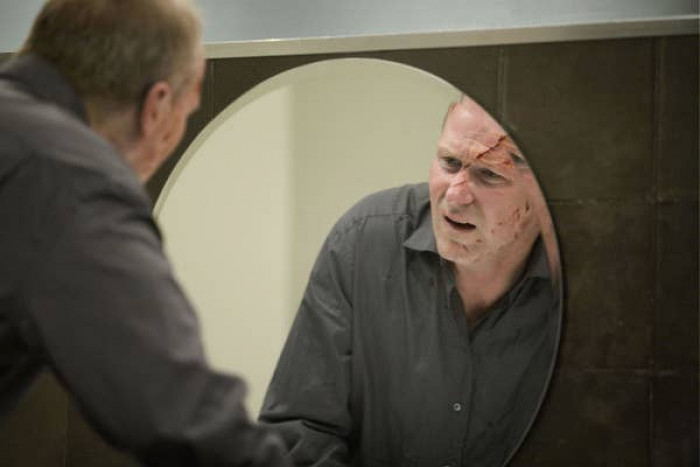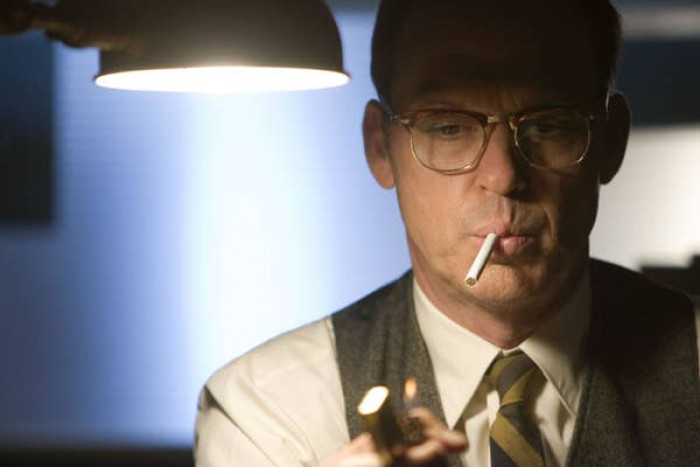
19 Excellent TV Mini-Series We Can't Justify Having Forgotten About
These classics are great for your next movie night

TV shows and mini-series have progressed a lot in the past decade. Up until then, it was unthinkable for Hollywood A-lister actors, directors, and producers to have their names associated with them.
If you were an actor and you appeared in one, it was a sign that your career was going downhill. Furthermore, passing from television to movie theaters was almost impossible.
Many actors have tried and failed miserably. Once a TV actor, always a TV actor.
Today, however, the situation is completely different. TV shows can match and even surpass blockbuster movies in any category.
Famous actors regularly appear in them. Thanks to technological advances and the shift in the audience’s tastes, TV shows are on the top again.
However, it did not come suddenly and it took a lot of effort. Some of the predecessors that have paved the way are now forgotten, and we want to change that.
The shiny new and impressive shows have overshadowed classics that are now somewhere in the back of your watchlists, and that is simply not fair.
We have created a list of 19 great, but forgotten TV mini-series. Take a look, you might get inspiration for your next movie night.
Let's begin:
Stephen King’s Storm of the Century
Stephen King's first attempt into original small screen programming, which starred Colm Feore in a nefarious demonic role, is still a difficult-to-find (legally) cult favorite and one of the author's favorite produced works.
 Prod.DB / Greengrass / Rainfall / USA / Alamy
Prod.DB / Greengrass / Rainfall / USA / AlamyFrank Herbert’s Children of Dune
Following the popularity of the first Dune miniseries on the Sci-Fi Channel, the network created this surprisingly excellent follow-up that included a standout performance from a young James McAvoy.
 Touchstone Television / Blixa Film Produktion / Courtesy Everett Collection
Touchstone Television / Blixa Film Produktion / Courtesy Everett Collection
Hatfields & McCoys
This dramatic true-life western miniseries starring Bill Paxton and Kevin Costner centers on two neighboring families caught up in a blood feud.
 Sony Pictures Television / Alamy
Sony Pictures Television / AlamyTin Man
This provocative modern retelling of The Wizard of Oz, which starred an all-star cast including Zooey Deschanel, Alan Cumming, and Richard Dreyfus, was a critical and financial triumph upon its initial airing but has since been forgotten by time outside of its once-in-a-blue-moon syndication.
 Sci-Fi Channel / Courtesy: Everett Collection
Sci-Fi Channel / Courtesy: Everett Collection
In Cold Blood
Eric Roberts and Anthony Edwards stand out In this 1996 version of Truman Capote's classic murder novel In Cold Blood, directed by Jonathan Kaplan.
 Pacific Motion Pictures / Courtesy: Everett Collection
Pacific Motion Pictures / Courtesy: Everett CollectionComa
In 2012, Tony and Ridley Scott collaborated with author Robin Cook to resurrect his tense and meticulous sci-fi book, which had previously been adapted for the big screen by Michael Crichton, the man behind Westworld and Jurassic Park.
 A&E / Courtesy Everett Collection
A&E / Courtesy Everett Collection
Arabian Nights
This entertaining and flamboyant 2000 ABC mini-series was supported by a scene-stealing dual performance by John Leguizamo, despite some of the casting decisions being somewhat unfortunate in retrospect.
 ABC / Courtesy Everett Collection
ABC / Courtesy Everett CollectionInto the West
This outstanding ensemble six-part miniseries, which Steven Spielberg and DreamWorks produced, examines how the American Frontier's growth throughout the 1800s affects various generations of men and women as they engage in conflict.
 TNT / Courtesy Everett Collection
TNT / Courtesy Everett Collection
Jack and the Beanstalk: The Real Story
This 2001 miniseries, which was directed by Brian Henson, shows a more humanitarian portrayal of the traditional fairy tale with the vibrant and highly innovative work that Jim Henson's Creature Workshop is known for.
 Hallmark Entertainment / Courtesy Everett Collection
Hallmark Entertainment / Courtesy Everett CollectionNightmares & Dreamscapes: From the Stories of Stephen King
The horrific anthology by Stephen King was given a star-studded adaptation, which effectively resurrected his popularity.
 TNT / Erik Heinila / Album / Alamy
TNT / Erik Heinila / Album / Alamy
The Company
Michael Keaton plays in this three-part series about the CIA’s operations during the Cold War.
 TNT / Jan Thijs / Album / Alamy
TNT / Jan Thijs / Album / AlamyThe Kids in the Hall: Death Comes to Town
This funny and sarcastic murder mystery was the iconic comedy group's first on-screen work in 13 years. It was a format change for the Kids in the Hall, but it also demonstrated their continued creative prowess.
 IFC Films / Courtesy Everett Collection
IFC Films / Courtesy Everett Collection
Thief
Thief, which was anchored by an Emmy-winning performance by Andre Braugher, introduced a complex and suspenseful drama to the mini-series format, effectively creating the "limited event series" model that would dispel the stigma of short-form television dramas on premium cable over ten years later.
 FX Networks / Courtesy Everett Collection
FX Networks / Courtesy Everett CollectionSalem's Lot
This miniseries, a more sinister, contemporary adaptation of the well-known Stephen King story, starred Rob Lowe, Donald Sutherland, Rutger Hauer, Samantha Mathis, and James Cromwell. However, it has regrettably lost popularity as audiences drift further and further away from cable distribution.
 TNT / Courtesy Everett Collection
TNT / Courtesy Everett Collection
Red Riding
Red Riding is a truly captivating (and, at times, heartbreaking) story about police corruption during the Yorkshire Ripper murders with a stacked cast that includes character acting greats like Sean Bean, Peter Mullan, and Mark Addy as well as future stars like Andrew Garfield, Rebecca Hall, and Robert Sheehan. Red Riding was eventually released in the U.S. as an independent film trilogy.
 IFC Films / Courtesy Everett Collection
IFC Films / Courtesy Everett Collection
Generation Kill
Despite being praised for its authenticity and ruthless honesty, HBO's devastating Generation Kill miniseries on the 2003 invasion of Iraq has eventually been eclipsed by the network's more lauded (and popular) military projects, Band of Brothers and The Pacific.
 HBO / Paul Schiraldi / Album / Alamy
HBO / Paul Schiraldi / Album / Alamy
Broken Trail
Walter Hill's two-part western about cowboys who rescue several women from a slave trader was not only a return to form for the tough action director but also further evidence of Robert Duvall's sixth sense when it comes to adored miniseries set in the Wild West. It was another early example of what would later be regarded as "prestige television."
 AMC / Courtesy: Everett Collection
AMC / Courtesy: Everett Collection
Stephen King's Rose Red
The outstanding and terrifying miniseries by Craig R. Baxley about a group of supernaturally gifted test subjects who choose to reside at a notoriously fatal manor may be the best Stephen King adaptation ever.
 ABC / Courtesy Everett Collection
ABC / Courtesy Everett Collection
Steven Spielberg Presents: Taken
Taken, a big television event for its time, not only contributed to the early success of Dakota Fanning as a superstar but also offered really gripping dramatic material for an alien abduction series that had previously been consigned to low-budget schlock and "believe-it-or-not" docuseries.
 DreamWorks Television / Courtesy Everett Collection
DreamWorks Television / Courtesy Everett Collection
The mini-series ruled as the king of television's short-form appointment viewing before the era of multiple streaming platforms and limited event series.
Many mini-series have, however, been lost in the sands of time as a result of changes in the way people consume material and the way television is presented. It's about time we give them the praise they deserve, right?
Damjan







